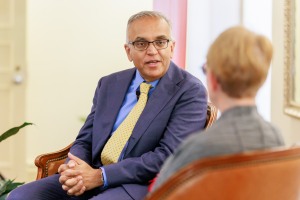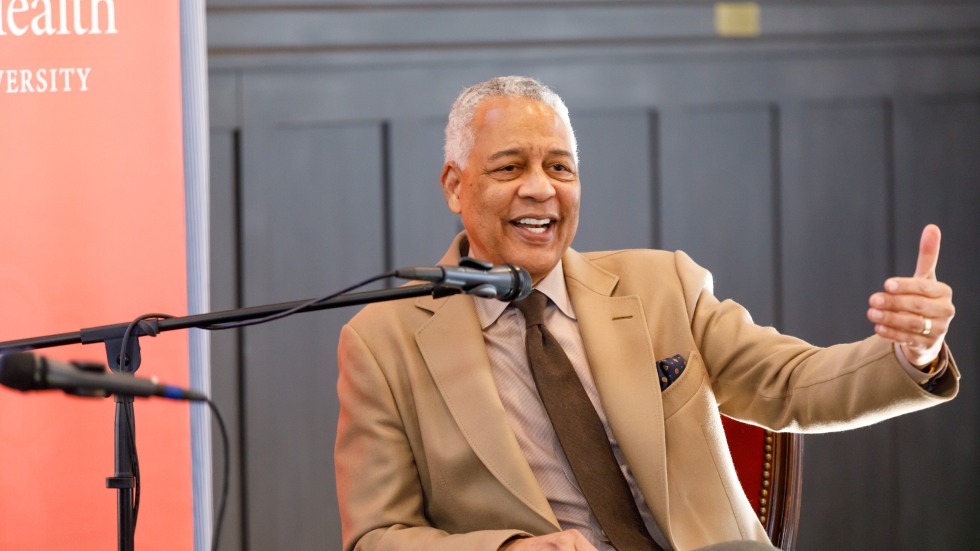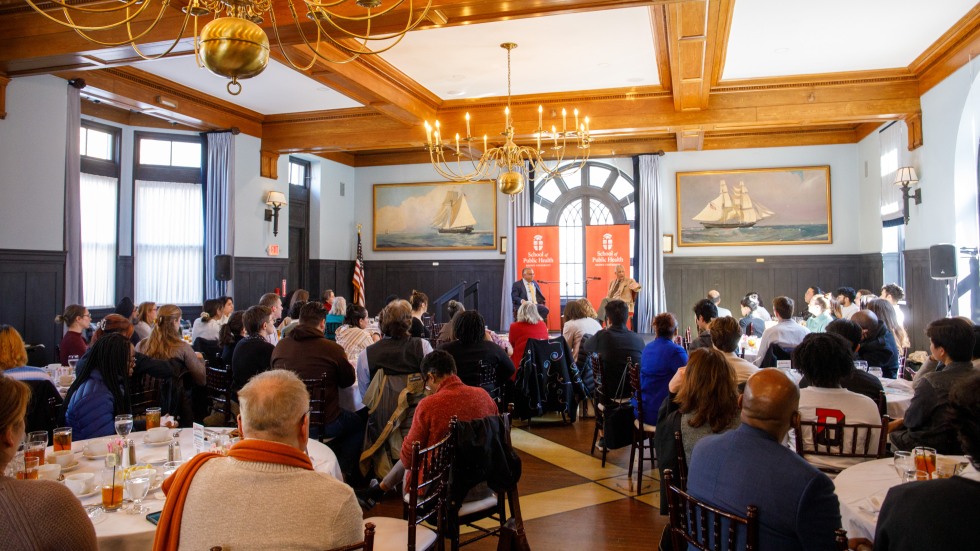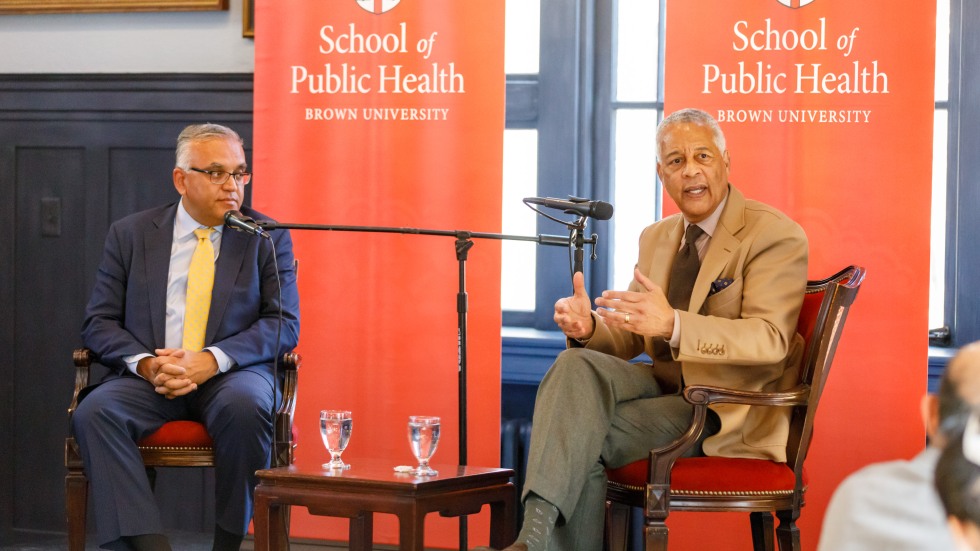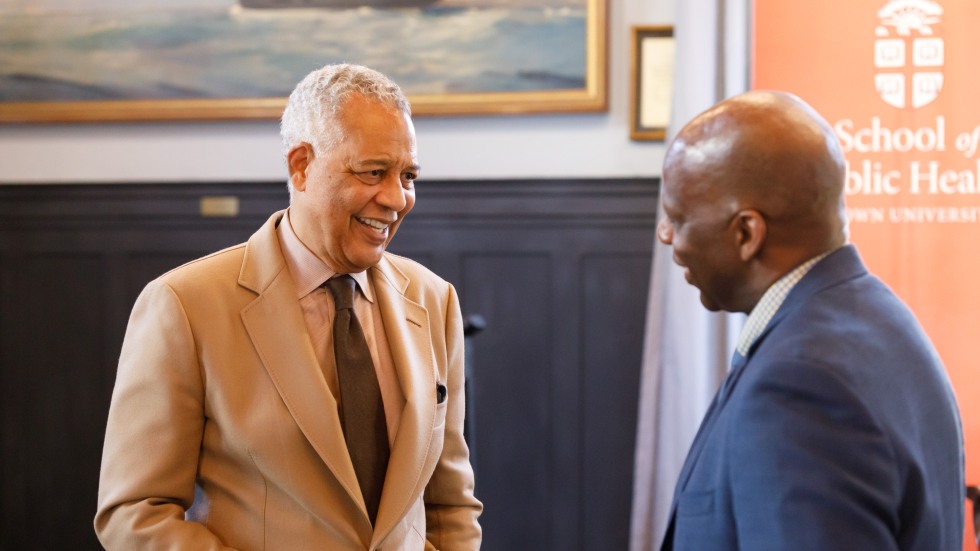On Monday, February 26, Dean Ashish Jha hosted a special edition of the Dean’s Conversation Series at Providence’s Hope Club. The event featured Reed V. Tuckson M.D., FACP, managing director of Tuckson Health Connections, LLC, an organization dedicated to promoting health and preventing disease through innovative approaches in data analytics, care delivery efficiency, telehealth and biotech. Dr. Tuckson is also a co-founder of the Black Coalition Against COVID, leading efforts to combat the recent pandemic in Washington, D.C. and across the country.
With a distinguished career that includes roles as president of the Charles R. Drew University of Medicine and Science, executive vice president and chief of medical affairs at UnitedHealth Group and commissioner of public health for the District of Columbia during the height of the AIDS epidemic, Dr. Tuckson’s impact on the field of public health has been profound.
Currently, Tuckson focuses on his role as co-convener of the Coalition for Trust in Health & Science, working to unify the healthcare industry in combating mistrust and disinformation, challenges he described in his conversation with Dean Jha, as the most pressing of those facing Black America.
Stefanie Friedhoff, co-founder and co-director of the Information Futures Lab at Brown, introduced Reed as someone “who has been a pivotal figure in health equity for a long time, who has demonstrated a strong commitment to serving people, not just systems, and is driven by a desire to change the status quo.”
